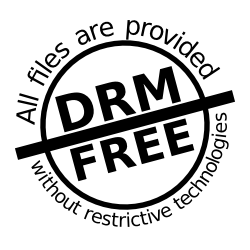What big media corporations call “Digital Rights Management” (DRM) and digital freedom activists refer to as “Digital Restrictions Management” has long been the toxic sludge of digital music, video and e-books.
With DRM, corporations impose digital locks on digital media and on digital devices that restrict what you can and can’t do with that media or device.
In 2005, Sony BMG used DRM software on their music CDs, that secretly installed a rootkit on computers running the Microsoft Windows operating system that seriously compromised the security of countless numbers of machines.
In 2008, users of Microsoft’s Windows Vista Media Centre operating system were remotely blocked from recording a number of NBC television shows.
Three years ago, in the most Orwellian of Orwellian moves, Amazon remotely deleted copies of George Orwell’s 1984 from users of Amazon’s Kindle e-reader device.
Even folks who play computer games have been victims of DRM madness. In this example from the Ars Technica website, people who had bought a computer game found that after they installed it on their computer that they couldn’t play it. The reason? The computer game company’s “authentication server” was down.
Governments around the world have worked to protect big corporate media through things like the “Digital Millenium Copyright Act (DMCA) in the U.S., and the Harper government’s recent changes to Canada’s Copyright Act.
Of course what governments can’t get through their legislatures, they try to pass through the back door via so-called “trade agreements” like the “Anti-Counterfeiting Trade Agreement” (ACTA), the Canada/EU “Comprehensive Economic and Trade Agreement (CETA) and the “Trans Pacific Partnership” (TPP).
What can we do about it? One thing we can do is simply not buy digital media that imposes DRM. Buy “DRM-free” media.
Consumer pressure has lead to some loosening of the chains on digital music. However with e-books, progress on the DRM elimination front has been slow.
The Free Software Foundation’s “Defective by Design” campaign has recently updated their “Guide to DRM-free Living” to help you find digital materials that aren’t locked down with DRM. They’ve also launched a new “DRM-free” logo so that distributors of DRM-free materials can use it to promote their products.
Many of us shop for locally grown, certified organic, fair trade food for our stomachs. Isn’t it time that we had DRM-free media for our brains?



